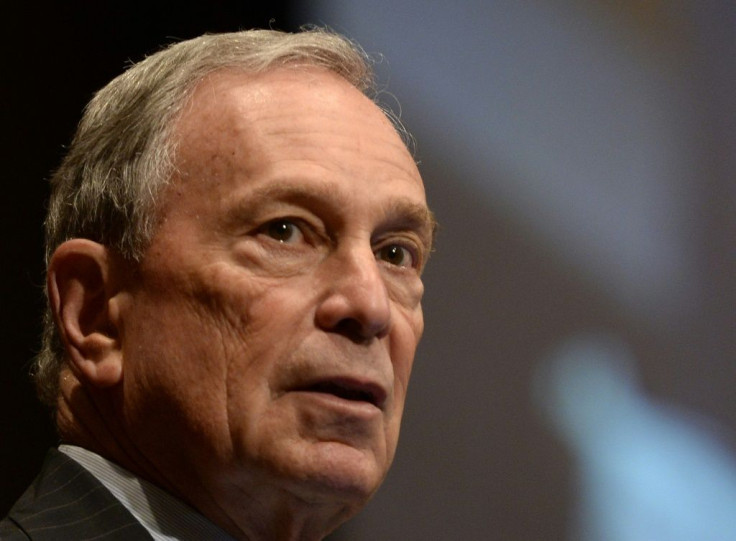Can Michael Bloomberg Win The Democratic Nomination? After Debates New York Mayor May Face Uphill Battle

Former New York Mayor Michael Bloomberg, who entered the crowded 2020 Democratic presidential primary field during the weekend, is "defying gravity" by ignoring the early contests to concentrate on Super Tuesday, experts say.
Bloomberg, one of the richest people in the world, launched his campaign with a blitzkrieg of television commercials and is counting on his wealth being an asset in the race. He's skipping the early races in Iowa, New Hampshire and South Carolina to concentrate on Super Tuesday March 3 when a quarter of convention delegates are up for grabs.
“Running for the nomination without running in the early states is like defying gravity. That’s how hard it is,’’ Elaine Kamarck, a Brookings Institution expert who has studied the presidential nominating process, told Bloomberg News. "However, what has not been tried is defying gravity with a lot of money behind you.’’
He has promised to take no political donations during the course of his campaign as well as no salary if he wins the White House.
His campaign immediately reserved space for $30 million of television ads during the first week of his candidacy, one of the largest single ad buys in presidential campaign history. By comparison, fellow billionaire and presidential aspirant Tom Steyer plans to spend $1.2 million over the same period. Sanders reacted with outrage toward Bloomberg's ad blitz.
Bloomberg is positioning himself as a moderate and electable alternative to the party's rising populist wing, represented by Massachusetts Sen. Elizabeth Warren and Vermont Sen. Bernie Sanders. Earlier this year, he criticized progressive Democrats' proposal for a Medicare-for-all, single-payer health care system, saying that the nation could "never afford that." When asked this week whether be believes the current field is too weak to beat Trump, he replied, "There is a greater risk of having Donald Trump re-elected than there was before."
Both Sanders and Warren reacted to Bloomberg's entry into the race by taking aim at his television advertising, hoping to turn his asset into a negative by making a critique of money in politics.
"I’m disgusted by the idea that Michael Bloomberg or any other billionaire thinks they can circumvent the political process and spend tens of millions of dollars to buy our elections," he said. Warren made similar remarks, arguing that Bloomberg "is making a bet about democracy in 2020, he doesn’t need people, he only needs bags and bags of money. I think Michael Bloomberg is wrong."
But even with his substantial financial resources, Bloomberg may face an uphill battle to winning over the hearts of Democratic voters. A YouGov/Economist poll from earlier this month indicates 34 percent of Democratic primary voters have a favorable view of Bloomberg while 36 percent have an unfavorable view; 32 percent don't have an opinion.
Odds Shark puts the odds of him winning the White House at +2500 as of last Thursday. That compares with +130 for the chances of President Trump retaining office.
Former Chicago Mayor and Obama Chief of Staff Rahm Emanuel offered his own analysis on the primary race in an interview late last week.
"He has a record, which is a strength and a weakness in the primary," Emanuel said of Bloomberg.
But like Kamarck, Emanuel pointed to the billionaire's wealth as an asset.
"As a former finance director for Bill Clinton, [I] don’t ever underestimate somebody’s ability to write a $100 million check and not miss it," he said.
© Copyright IBTimes 2025. All rights reserved.





















